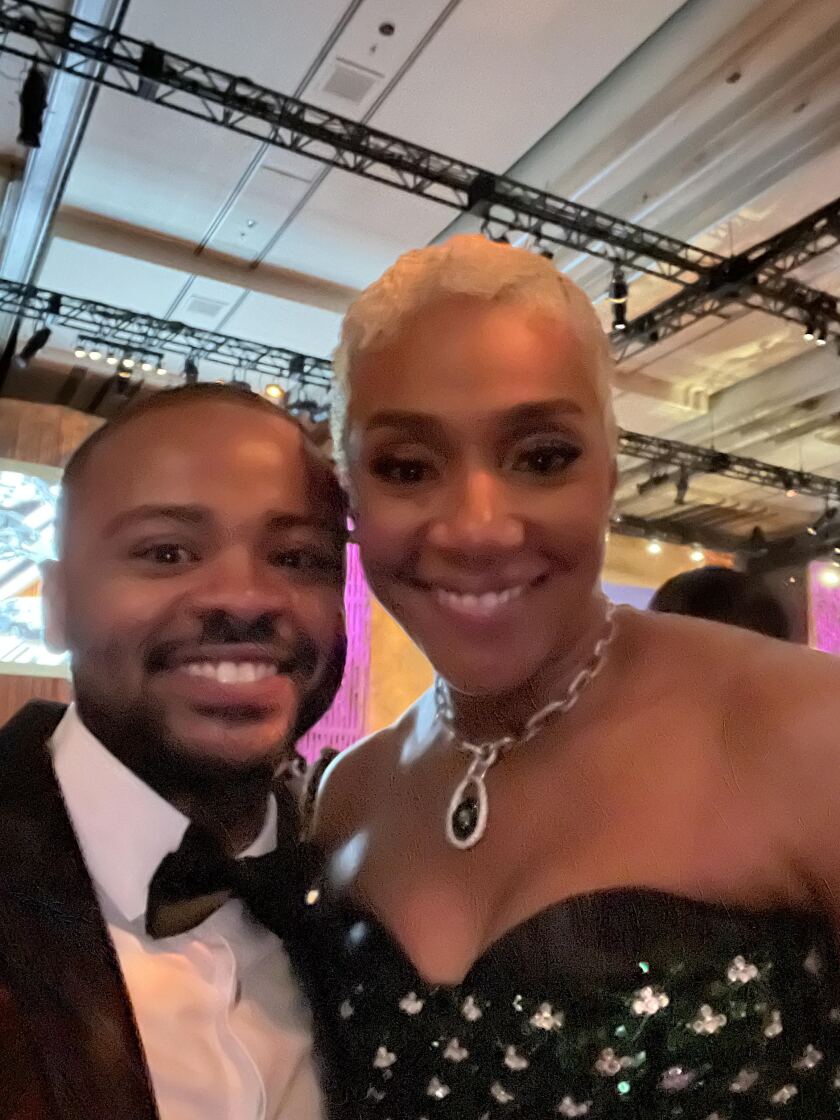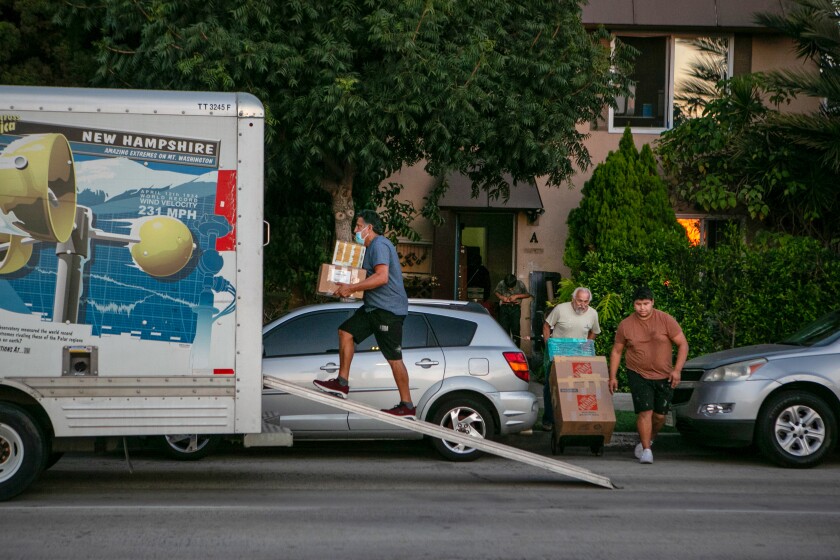Good morning, and welcome to the Essential California newsletter. It’s Monday, March 28. I’m Justin Ray.
The Oscars have seen many unexpected moments, but the 94th Academy Awards show was shocking.
As you already know, a physical confrontation took place between Chris Rock and Will Smith, who was nominated — and later won — for his portrayal of Richard Williams, the father of tennis superstars Venus and Serena, in the movie “King Richard.”
Moments after the incident, Sean “Diddy” Combs said on stage that Smith and Rock would settle things “like family.” In his acceptance speech for the lead actor Oscar, Smith said Denzel Washington — who previously won the top award —told him after the altercation: “At your highest moment, be careful — that’s when the devil comes for you.”
At the lower-level bar in Dolby Theatre, a crowd formed in front of a television as the incident played out. When Smith yelled at Rock for talking about his wife, Jada Pinkett Smith, I yelped, “Wow.” In response to my reaction, a woman next to me began laughing. She happened to be “The Power of the Dog” director Jane Campion.
My honest first reaction to the moment was disappointment because people might get the wrong impression of how our community treats our own. Rock’s tasteless joke about Pinkett Smith was uncalled for, and yes, there are times when we don’t do the best job of supporting one another. However, I can personally attest to the opposite. Just look at what happened to me that same night.
Black celebrities embraced me — a complete stranger — and my $80 jacket from Amazon. I had great conversations with Black stars about the struggles of being a person of color in entertainment.
After complimenting my apparel, “Insecure” actor Jay Ellis told me: “There’s always a barrier; there are guardians at the gate that often don’t let people through, and I think there’s a discoverability thing too... I think that leaves people who are insanely talented at times left out.”
Jill Scott was with another attendee when she saw me standing like a lost puppy. The singer and actress asked me if I was waiting for someone. I told her I wanted to speak to her, and she smiled and responded: “Well, speak to me.”
There are many talented Black makeup artists, hairstylists and actors, Scott said, who don’t get credit because not all of the projects they work on are Oscar or Emmy contenders. “But the work is still the work,” said the actor, who starred in the 2008 HBO series “The No. 1 Ladies’ Detective Agency.” “I was the first black woman to be a lead on HBO and I don’t get credit for that.”
When I saw Tiffany Haddish sitting at a table, I asked if I could interview her. She told me to sit down next to her. I asked if she would talk about the difficult aspects of being a Black celebrity.

Comedian Tiffany Haddish and Justin Ray. (Justin Ray)
“People think you might be violent, ignorant or dumb,” Haddish told me. She also said, “You are under attack by your own people.”
Then, something unexpected happened. Haddish asked me about my career aspirations and gave me some advice about how I could go about achieving them. She seemed genuinely interested in talking me through my goals and even thanked me for the conversation.
“I fight to make sure Black people are working,” Haddish said. “I’m willing to get fired to make sure that 10 people get hired.”
Talking to strangers is difficult. But during the Oscars, that wasn’t the case: I was talking to my family. Although the friction between Smith and Rock will no doubt be the moment most people remember, what I will recall is how my community supported me.
And now, here’s what’s happening across California:
Note: Some of the sites we link to may limit the number of stories you can access without subscribing.
Los Angeles and San Francisco saw sizable declines in population during the first year of the COVID-19 pandemic, new census data show,underscoring how California’s housing crisis and other demographic forces are reshaping two of its largest cities. Los Angeles Times

Sixteen-year-old Ethan Roman, right, dad Eliazar Cabrera and other family members load a U-Haul for their move from L.A. to Huron, Calif., on Oct. 2. (Jason Armond / Los Angeles Times)
Black Tesla employees describe a culture of racism. A single mother was excited to land a job at Tesla. About three years in, she was fired, she said, after complaining that Black workers were frequently called the N-word on the assembly line. In interviews with The Times, three Black former employees described how jobs at the pioneering automaker devolved into personal nightmares due to a pattern of rampant racism and harassment at Tesla’s Fremont, Calif., factory. Los Angeles Times
No comments:
Post a Comment